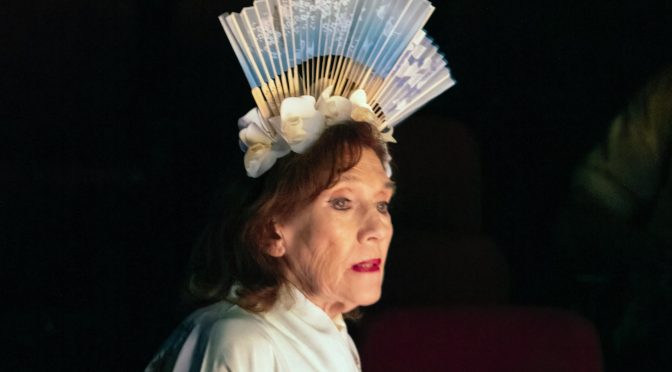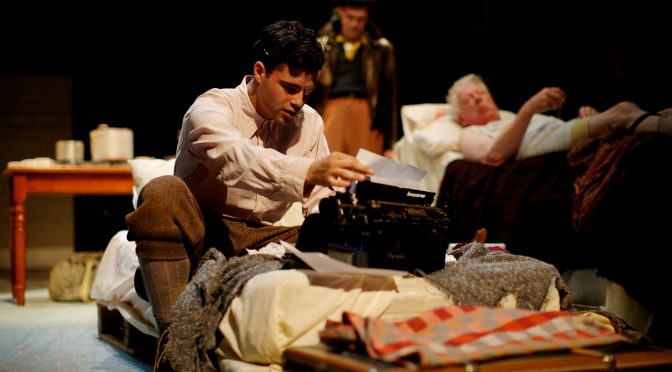It takes courage as well as expertise to tackle this 1963 play by Tennessee Williams. Director Robert Chevara has the bravery and expertise to do the job but there’s no pretending this a show for everyone.
Williams’ overwrought, some might say overwritten, script suffers from his own biography (the programme contains a note to that effect). The playwright’s reputation weighs heavily over the work. Take the lead – an aging, addled Southern Belle called Flora – who could be a cliché of earlier writing or, too temptingly, a reflection of Williams’ life.
The Milk Train Doesn’t Stop Here Anymore is rich in symbols and ideas, with dialogue so convoluted it can seem ridiculous. It’s a meditation on mortality, with a terminally ill heroine who’s out of her mind and another character nicknamed The Angel of Death, who is really a (pretty bad) poet. And it’s one of Williams’ ‘memory plays’ as Flora recounts her “demented memoirs” out loud. What kind of a book that would be is a puzzle; ambitions to be another Proust indicate that what she is writing, in snatches, is more fiction than fact. But, as Flora’s grip on reality weakens, she comes to believe her own legend… maybe.
Chevara gives as much guidance as he can. The production is hampered by a set from Nicolai Hart-Hansen, separating locations in Flora’s Italian villa to little effect. But Chevara makes the piece tense and tender – neither quality easily achieved – and he has a commendable view about the humour in the piece.
“A witch and a bitch”
The production has strong performances that win respect. The star casting of Linda Marlowe and Sara Kestelman, as Flora and her ‘friend’ The Witch of Capri, is exciting. Kestelman is superb with the waspish humour so many Williams fans adore. But the catty remarks – which are very funny – are handled with restraint. This play shows a serious side of camp, and that is one of its many challenges.
Marlowe’s Flora is fragile and builds to ferocious as death approaches. Generating surprising sympathy for this “dying monster”, Marlowe also aids suspense. Flora declares, “everything is urgentissimo this summer”, with the aim of taking a lover – quite literally – on her death bed. How’s that for uncomfortable?
Sanee Raval’s role as Chris Flanders, that so-called Angel of Death, sums up many of the difficulties with the play. More credit to him for his performance. The role is caught between the real and the symbolic. Raval’s performance shows intelligence as the character starts to believe his own myth, while being aware it is one constructed by Gothic gossip.
The Milk Train Doesn’t Stop Here Anymore is extreme to the point of crazed, so you need a director with a very firm hand in charge and an open mind (ready to be blown away) to watch it. Of course, the theatre can only provide one of these. Be prepared to work if you go to this one.
Until 22 October 2022
Photo by Nick Haeffner


